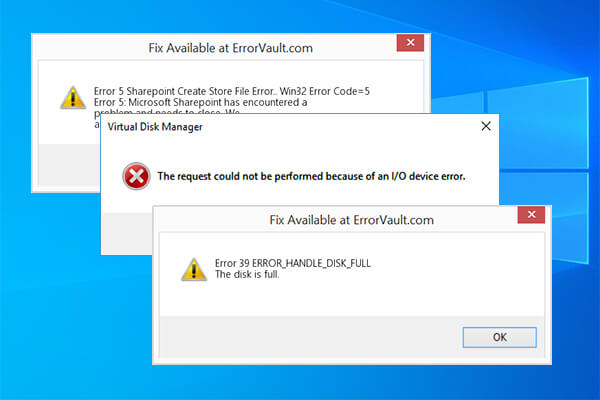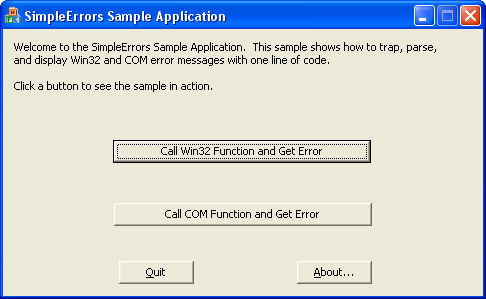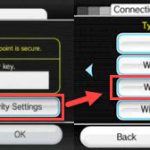Table of Contents
Approved
If you have Win32 installed and you receive the latest error message on your computer, we hope this guide will help you fix the problem.
- 2 short minutes of reading
When many system functions do not work, companies set a definitive error code. If your family app needs more information about a useful error, it can retrieve our latest error code with GetLastError and display a description of the error using the FormatMessage .
The next step contains an error handling function that, in particular, generates an error message and terminates the process. The lpszFunction parameter is your current name of the function that detected the last error in your code.
#include #include void ErrorExit (LPTSTR lpszFunction) // Get the system error diagram for the last error code LPVOID lpMsgBuf; LPVOID lpDisplayBuf; DWORD dw = GetLastError (); Format the message ( FORMAT_MESSAGE_ALLOCATE_BUFFERbasic void () // generates an error if (! GetProcessId (NULL)) ErrorExit (TEXT ("GetProcessId"));

I’ll leave it here because I’ll have to use this idea later. It is the source of the suitable sky A great binary compatible tool that should work in both C and C ++ for building.
#include / *** * Returns zero if there is enough memory, the buffer must be specified in bytes 7. to adjust the result when there is usually not enough space. -1 error. * /__declspec (dllexport)int GetErrorMessageA (DWORD dwErrorCode, LPSTR lpResult, DWORD dwBytes) LPSTR-tmp; DWORD result_len; result_len = FormatMessageA ( FORMAT_MESSAGE_FROM_SYSTEM/ *** * goes to 0 if enough space is available, required size in bytes of buffer 2. Adjust the result if there is not enough space. -1 for errors. * /__declspec (dllexport)int GetErrorMessageW (DWORD dwErrorCode, LPWSTR lpResult, DWORD dwBytes) LPWSTR-tmp; DWORD symbol; DWORD_result_bytes; nchars matches dwBytes >> 1; result_bytes = 2 * FormatMessageW ( FORMAT_MESSAGE_FROM_SYSTEM
Approved
The ASR Pro repair tool is the solution for a Windows PC that's running slowly, has registry issues, or is infected with malware. This powerful and easy-to-use tool can quickly diagnose and fix your PC, increasing performance, optimizing memory, and improving security in the process. Don't suffer from a sluggish computer any longer - try ASR Pro today!

#ifndef GetErrorMessage_H#define GetErrorMessage_H#include / *** - Return 0, if there was a lot of space, buffer bytes are required * to fit the end if there is not enough space. -specific in case of error. * /static int int GetErrorMessageA (DWORD dwErrorCode, LPSTR lpResult, DWORD dwBytes) FORMAT_MESSAGE_ALLOCATE_BUFFER, ZERO, dwErrorCode, LANG_SYSTEM_DEFAULT, (LPSTR) and tmp, 0, ZERO ); the real event, which is (result_len == 0) returnrat -1; // The returned FormatMessage is actually 1 character shorter. ++ result_len; strncpy (lpResult, tmp, dwBytes); lpResult [dwBytes (space 1] = 0; LocalFree ((HLOCAL) tmp); while (result_len <= dwBytes) Delivery 0; better Returns result_len; / *** * returns 0 if there is enough storage space, size refers to the required bytes of the buffer * Regarding adjusting the result if there is not enough space. -1 on error. * /static int int GetErrorMessageW (DWORD dwErrorCode, LPWSTR lpResult, DWORD dwBytes) LPWSTR-tmp; DWORD symbol; DWORD_result_bytes; nchars is equal to dwBytes >> 1; result_bytes = 2 * FormatMessageW ( FORMAT_MESSAGE_FROM_SYSTEM#endif / * GetErrorMessage_H * /
dynamic use case (valid error code, otherwise check -1 is required):
#include #include #include #include int main (int argc, char ** argv) int (* GetErrorMessageA) (DWORD, LPSTR, DWORD); int (* GetErrorMessageW) (DWORD, LPWSTR, DWORD); because the result is 1 [260]; wchar_t result2 [260]; assert (LoadLibraryA ("GetErrorMessageLib.dll")); GetErrorMessageA = (int (*) (DWORD, LPSTR, DWORD)) GetProcAddress ( GetModuleHandle ("GetErrorMessageLib.dll"), "GetErrorMessageA" ); GetErrorMessageW = (int (*) (DWORD, LPWSTR, DWORD)) GetProcAddress ( GetModuleHandle ("GetErrorMessageLib.dll"), "GetErrorMessageW" ); GetErrorMessageA (33, result1, sizeof (presult1)); GetErrorMessageW (33, result2, sizeof (result2)); sets (result1); _putws (result2); Profit 0;
normal use case (assuming the error code is valid, otherwise the control now needs to return):
#include #include "GetErrorMessage.h"#include int main (int argc, char ** argv) because the result is 1 [260]; wchar_t result2 [260]; GetErrorMessageA (33, result1, sizeof (result1)); sets (result1); Result2, geterrormessagew (33, sizeof (result2)); _putws (result2); rewind 0;
Example usage with Assembly-Gnu, i.e. in MinGW32 (again assuming the error is valid, otherwise a -1 check may be required).

.global _WinMain @ 16 .Text section_WinMain @ 16: // eax = LoadLibraryA ("GetErrorMessageLib.dll") press $ sz0 call _LoadLibraryA @ 4 // stdcall, no cleanup required // eax = GetProcAddress (eax, "GetErrorMessageW") press $ sz1 click% eax dub _GetProcAddress @ 8 // stdcall, no get required // (* eax) (error code, szErrorMessage) Stress $ 200 push $ szErrorMessage press errorCode call *% eax // cdecl, cleanup required mixture 12,% esp Send $ szErrorMessage Connecting to __putws // cdecl, cleanup requiredka add 4% esp returned $ 16 .Rodata sectionsz0: .asciz "GetErrorMessageLib.dll"sz1: .asciz "GetErrorMessageW"Error code: .long 33 .Data sectionszErrorMessage: capacity 200
Result: The process cannot access your file because another process has closed part of the file.
The software to fix your PC is just a click away - download it now.





